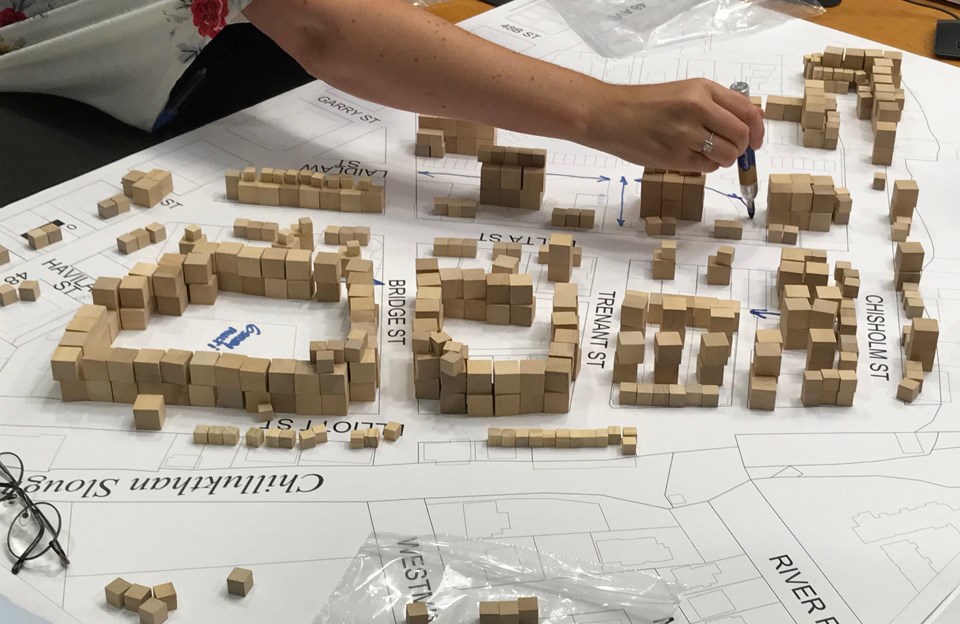Will the City of Delta finally approve an Official Community Plan (OCP) for Ladner Village that had been envisioned a decade ago?
The planning department is about to embark on another OCP review for the area, as well as the Ladner Waterfront Redevelopment Strategy.
Both projects are the result of recommendations by the Ladner Village Renewal Advisory Committee in its final 2020 report to council.
“This project considers updates to the OCP in service of revitalization objectives. Areas to be explored include land use, heights, and density within the Village as well as renewed design form and character guidelines for future development,” according to the planning department.
Meanwhile, a consultant was also retained to help shape the redevelopment of the Ladner waterfront, seen as a key element of village revitalization.
Opportunities for the waterfront include a reconfiguration and redesign of Chisholm Street as well as a site redevelopment strategy and concept for the Delta‑owned former Seven Seas site and Spot on the Water Park, the department notes.
When it comes to the OCP, back in 2012 council gave preliminary approval to a new plan, but backed off from passing elements of that plan following vocal opponents at a public hearing speaking against proposed heights and densities.
That year, former community planning director Thomas Leathem said, “The goal is to initiate the redevelopment of the downtown Ladner waterfront area to achieve a vibrant, people-oriented environment, with strong linkages to the waterfront, reflecting and celebrating the historical roots of the community.”
Delta had initiated the revitalization process in 2009 with the establishment of the Downtown Ladner Waterfront Redevelopment Advisory Committee.
That committee met with property owners and the public to discuss the future of the area, similar to what the latest committee had undertaken.
A consultant's report in 2011 recommended encouraging unique destination restaurants and retailers as well as more businesses from the food and beverage industry.
The proposed OCP amendments included adding a wider range of uses, such as recreational and specialized commercial, at the harbour, as well as an increase in building heights from two to two-and-a-half storeys on the north waterfront side of Chisholm Street and from two to four storeys on the south side of the street.
Leathem at the time said the proposal to allow up to four storeys was based mostly on economics, but that proposed height was also consistent with what is seen around Ladner and in Tsawwassen.
Delta during that time also announced the selection of Quay Property Management to submit a detailed proposal for the redevelopment of the civic owned properties along the waterfront, seen as a catalyst to reinvigorate the area.
The company eventually dropped out and nothing has happened there since.
On April 8, the city will hold a public webinar to launch both the Ladner Waterfront Redevelopment Strategy and the Ladner Village Official Community Plan Update projects.
The planning department notes further community engagement is planned for both projects later in the spring and during the summer as part of a second phase of work.
Both projects are scheduled to be completed within 2021.
Coun. Bruce McDonald, chair of the Ladner Village Renewal Advisory Committee at their first meeting in 2019, said he was disappointed when council backed off from the proposed changes in the OCP years earlier.
“I think there’s more of an acceptance that concrete changes need to happen and the village can’t just stay the way it is,” said McDonald in an interview following the release of his committee’s final report.
Committee vice-chair and fellow council member Dylan Kruger agreed, insisting their 2020 final report is not going to be just another document that collects dust on a shelf.
“To summarize the whole thing, it’s respecting Ladner Village’s heritage and preserving it while also excitedly looking forward to the future,” he said.
Their committee came up with 35 recommendations, 15 of which have been identified as high priority actions to encourage a varied range of housing through smart densification, activate the waterfront for commercial development and public access, and support business sustainability through increased vibrancy.




